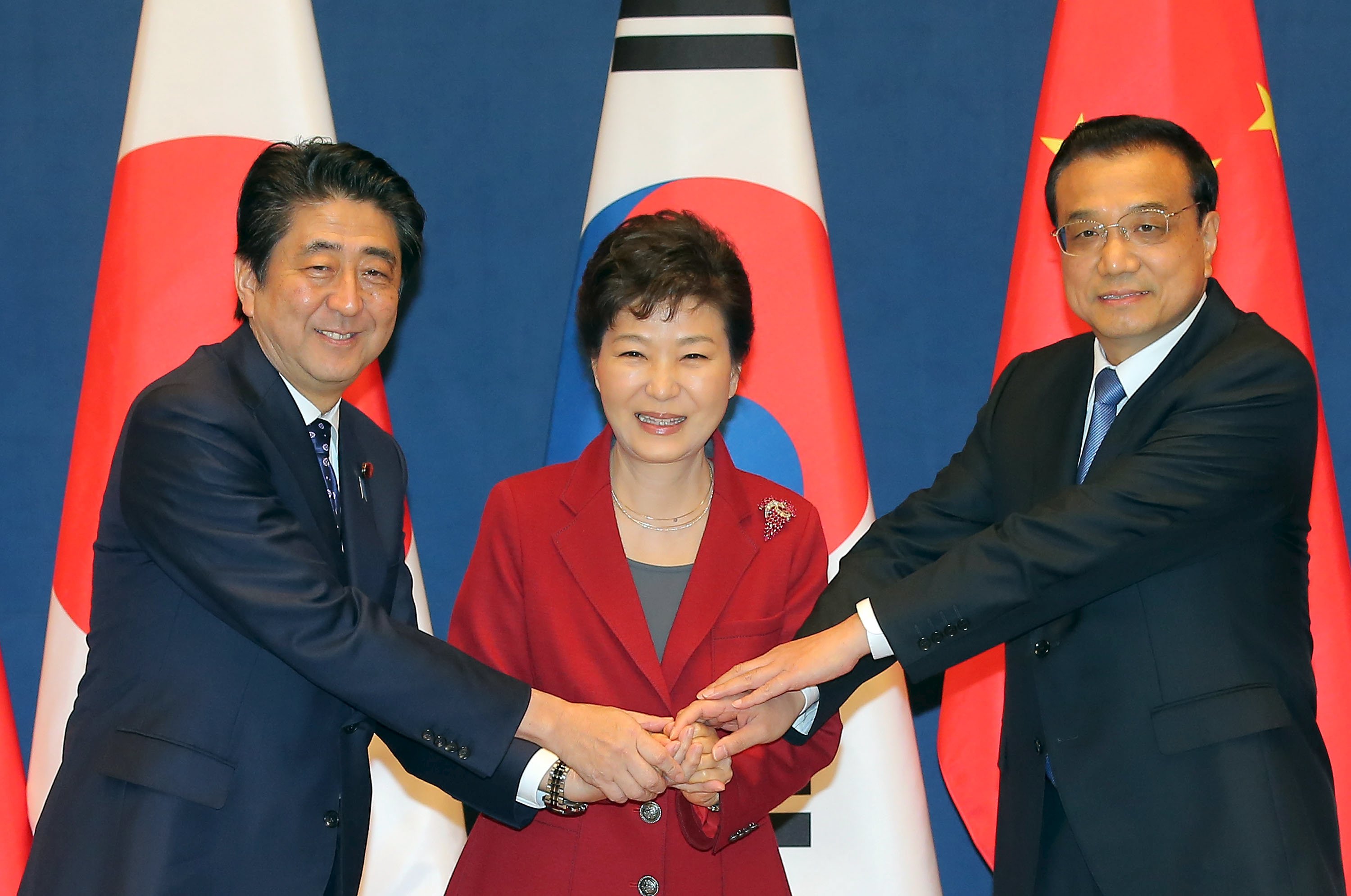Leaders of S. Korea, Japan and China meet in rare summit
SEOUL: The leaders of South Korea, China and Japan met Sunday in their first summit talks in more than three years and expressed hopes for improved ties, as the Northeast Asian powers struggle to find common ground amid bickering over history and territorial disputes.
No major breakthrough is expected, but just getting together in the same room — their first formal meeting since May 2012 — is a good sign.
High-level contacts between Tokyo and its two Asian neighbors nose-dived after hawkish Japanese Prime Minister Shinzo Abe took office in late 2012. Many in South Korea and China see Abe as trying to whitewash Japanese atrocities inflicted during its colonization of the Korean Peninsula and invasion of China in the first half of the 20th century.
Despite protests from Seoul and Beijing, Abe hasn't yielded on his nationalism. Even so, the three countries, closely linked economically, are pushing to find a way to improve ties.
"I think it's very meaningful for the leaders of the three countries have gathered at the same place," South Korean President Park Geun-hye said at the start of the meeting, according to South Korean media pool reports posted on the website of Park's office. "Today's summit meeting is a precious opportunity for us ... so that I hope it will be a venue for in-depth discussions."
Abe said the three countries must bolster cooperation, saying he wants to use the summit as a chance to exchange opinions "candidly" on regional and international issues. Chinese Premier Li Keqiang, for his part, said it was unfortunate that there were lack of understanding among some of the three countries but that Beijing hopes the three nations can work together and invigorate the regional economy and peace.
The three leaders were scheduled to hold a joint news conference later Sunday.
Analysts say the summit won't likely produce anything tangible on sensitive history and territorial disputes. They say the Asian leaders instead may seek common ground on economic issues, such as how to boost trade ties as their countries face economic woes at home.
On Saturday, Park and Li met separately and agreed to work toward ratifying by the end of the year a bilateral free trade agreement that their legislatures have yet to approve.
Park is to meet Abe on Monday in what will be her first formal one-on-one meeting with him since her inauguration in early 2013. Chinese President Xi Jinping met Abe last November on the sidelines of a regional conference that Beijing hosted, and they've met twice since.
North Korea is also on the agenda Sunday. Pyongyang's nuclear bomb and missile programs have long posed a serious security worry for Seoul and Tokyo. China is North Korea's only major ally and biggest aid benefactor, but has shown signs that it's increasingly fed up with the North's repeated provocations.
Park told Li that she wants China to continue to play a constructive role on North Korea issues, while Li called for more patience to continue efforts to achieve a nuclear-free Korean Peninsula, according to Park's office.
South Korea, China, Japan and North Korea are all members of now-dormant international negotiations on ending Pyongyang's nuclear ambitions. The other two members are the United States and Russia.
Despite widespread discontent in Seoul with Abe, Park has faced calls at home to improve ties with Tokyo, and Washington has pushed its two Asian allies to heal their rift.
South Korea and Japan together host about 80,000 US troops, the core of America's military presence in the Asia-Pacific. Washington wants to solidify its alliance with the two countries to better deal with a rising China and a North Korean threat.
South Korea knows Abe won't make any concession on history issues, but it also understands how important the Seoul-Washington-Tokyo alliance is in coping with North Korea's missile and nuclear bomb efforts, said analyst Lee Daewoo at the private Sejong Institute.
Another point of friction is Korean women forced to serve as sex slaves for Japan's Imperial Army troops, a topic that Seoul and Tokyo say will arise during the Monday summit between Park and Abe.
In the face of protests by Beijing and Seoul, Abe was forced to abandon his earlier plans to revise Japan's 1995 apology over its wartime aggression and an earlier apology to so-called "comfort women." Japan has apologized many times before, but many in South Korea see them as insufficient.






